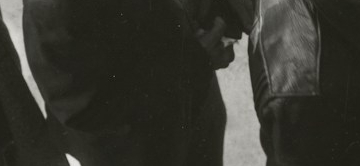This article was published in TSE science magazine, TSE Mag. It is part of the Autumn 2023 issue, dedicated to “The World of Work”. Discover the full PDF here and email us for a printed copy or your feedback on the mag, there.
Black and white photographs of women working in weapons factories have left an indelible imprint on the national imagination. The First World War was a turning point for French society, but research by TSE’s Victor Gay challenges popular ideas about the liberation of women on the assembly lines.
Women have always worked. But at the time of the First World War, even their paid work was overlooked by labor statistics: many worked inside the home, farm, or family business, often in textile manufacturing and domestic services.
Women were decisive participants in the industrial war effort, with as many as 430, 000 employed in the armament industries by 1918. The war caused a massive demographic shock, killing more than 1.3M French men. Often widowed by the bloodshed, and with fewer men to marry, many women were forced to find an occupation to make ends meet.
The fog of war
But this massive inclusion of women in the labor force was not initially as liberating as we might expect. First, it was a sign of women’s impoverishment relative to their pre-war economic status. Second, it was followed by strong antifeminist political measures. After the war, many female workers were promptly dismissed as the government took steps to guarantee veterans their pre-war jobs. Men in power called for repopulation and a reversion to patriarchal family norms. Access to contraception and abortion was restricted, as France lagged its peers in extending the vote to women.
Over generations, however, the power of working women to change social norms began to break through. Victor’s research has shown that men and women whose mothers and grandmothers had worked during the First World War had more progressive views about the role of women in the labor force. Their fight for equality continues.
FURTHER READING
- The Missing Men. World War I and Female Labor Force Participation, Victor Gay and Jörn Boehnke, 2022.
- The Intergenerational Transmission of World War I on Female Labor, Victor Gay, 2023.




